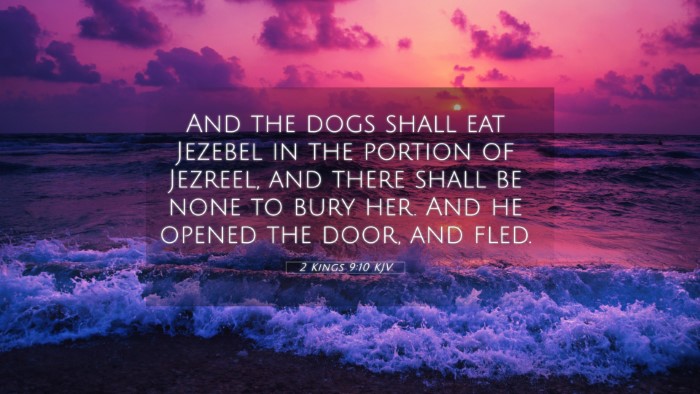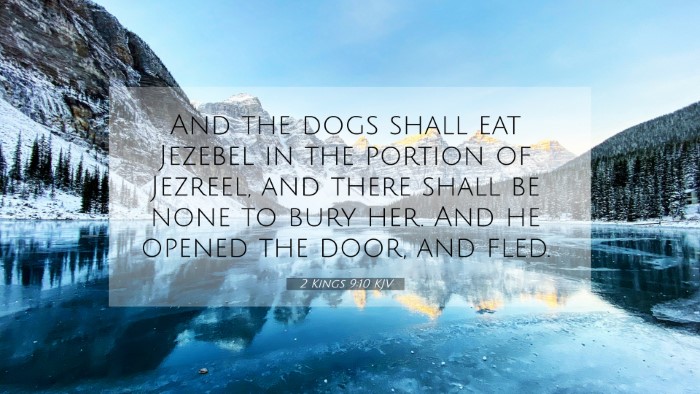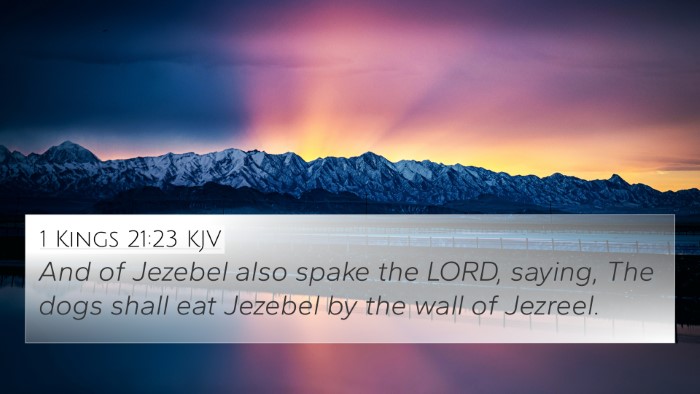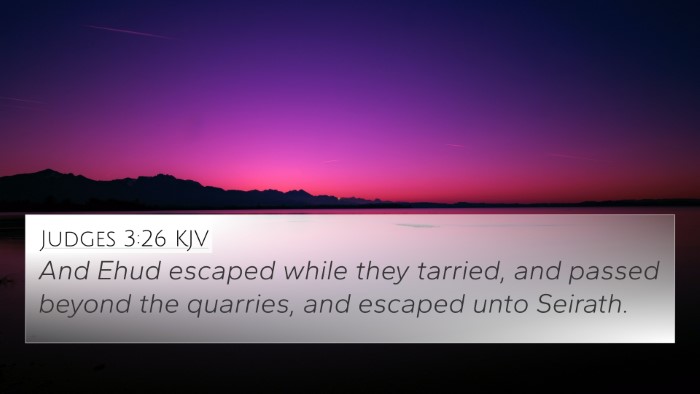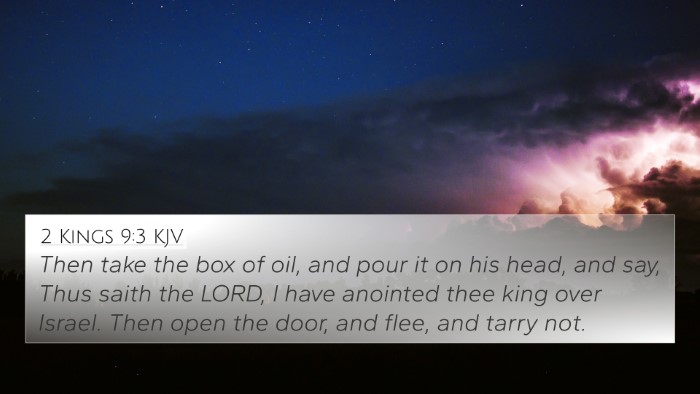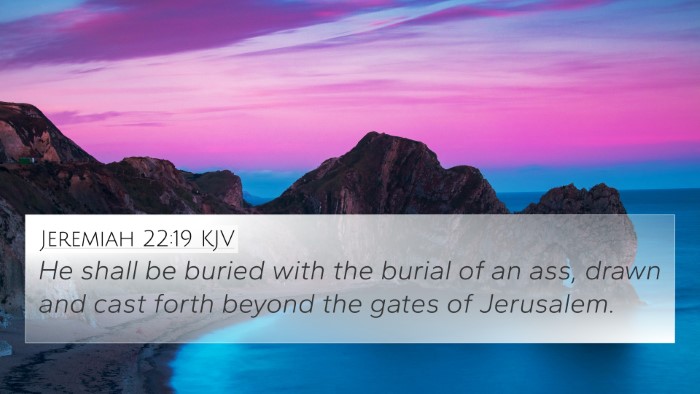Understanding 2 Kings 9:10
This verse states: "And the dogs shall eat Jezebel in the portion of Jezreel, and there shall be none to bury her." (2 Kings 9:10, KJV)
Summary of Meaning
In this striking prophecy delivered by Elisha, the fate of Queen Jezebel is foretold. This verse symbolizes divine judgment on her wickedness and idolatry, emphasizing that her death will be so dishonorable that she will not even receive a proper burial.
Commentary Insights
-
Matthew Henry:
Henry explains that this prophetic declaration emphasizes two main points: the certainty of divine judgment against Jezebel for her persistent evil, and the ultimate disgrace that comes from a life devoted to idolatry and immorality. The prophecy serves as a warning to those who lead others astray.
-
Albert Barnes:
Barnes notes that the significance of being eaten by dogs was particularly disgraceful in Jewish culture, where proper burial was vital for honor. This symbolizes not only judgment but also the utter rejection of Jezebel by the Lord and the complete dissolution of her legacy.
-
Adam Clarke:
Clarke highlights that this serves as a comprehensive indictment of Jezebel's character and actions, contextualizing it within her role as a female antagonist in the biblical narrative. This judgment confirms that her actions had consequences not just for her but also for the kingdom of Israel.
Cross-References and Thematic Connections
This verse connects with various others throughout the Scriptures that deal with judgment, prophecy, and the ultimate fate of the wicked. Here are some pertinent cross-references:
- 1 Kings 21:23: This verse prophesies Jezebel’s judgment earlier in the narrative.
- 2 Kings 9:36-37: A continuation of the fulfillment of the prophecy regarding Jezebel.
- Revelation 2:20-23: References to Jezebel relate to her teaching leading others into sin, highlighting the ongoing theme of judgment against false prophets.
- 2 Chronicles 22:2: Discusses her influence on her son Ahaziah, showing how evil leadership affects generations.
- Proverbs 11:21: The principle that the wicked will not go unpunished resonates with the fate of Jezebel.
- Matthew 7:2: The concept of divine justice and how we will be judged aligns with the broader implications of Jezebel’s life.
- Galatians 6:7: Relates the idea that you reap what you sow, which is clearly exemplified by Jezebel’s ultimate end.
Thematic Bible Verse Connections
In analyzing 2 Kings 9:10 in its context, we notice themes of divine retribution, the failure of wicked rulers, and the stark contrast between the righteous and the unrighteous:
- Kairos of Judgment: The timing of God's judgment on Jezebel serves as a reminder that no one escapes divine oversight.
- National Consequences of Personal Sin: Jezebel’s actions affected the entire nation of Israel, illustrating the interconnectedness of leadership and accountability.
- Women in Biblical Judgment Narratives: The role of women like Jezebel in biblical accounts often highlights the dangers of influence without restraint.
- Judgment and Hope: While the verse discusses judgment, it also signifies hope for the nation of Israel, as her removal opens a path for reform.
Tools for Bible Cross-Referencing
Understanding connections such as those in 2 Kings 9:10 can be enhanced using various tools:
- Bible concordance to track thematic terms.
- Bible cross-reference guide for systematic studies.
- Bible cross-reference systems for structured analysis.
- Comprehensive Bible cross-reference materials for in-depth research.
Conclusion
2 Kings 9:10 serves as a powerful reminder of divine justice and the consequences of sin, particularly as embodied in the life of Jezebel. Through the use of cross-references and thematic connections, one can ponder the broader implications of God's judgment and the importance of righteous leadership. For those seeking deeper understanding, engaging with the scriptures and utilizing tools for Bible cross-referencing can lead to a richer interpretation of biblical texts.

